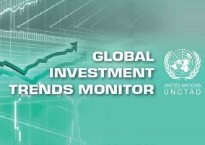If perhaps that historic scenario appears too far back in the rear view mirror, and for that matter too dramatic a lesson to be ignored today, then just look back a couple of years at the most recent faux pas of the European Central Bank, “ECB”. After some glimpses of recovery from the 2008 Great Recession, the ECB promptly set up a series of modest interest rates to keep ahead of inflation, even if such was largely inert. As direct consequence, Europe was plunged back into recession. The working classes and young suffered the most. Income and wealth inequality have become most pronounced in almost a century. Austerity became the prescribed remedy among the wealthier for the weaker economies. Not since WW II has Europe grown more nationalist and xenophobic political leaders, no longer merely weeds along Europe’s legislative chambers. The continent is the most divided since the collapse of the Berlin Wall. The implications though go beyond, from the turmoil in emerging markets and democracies to the rise of new virulent extremisms.
The US is neither immune nor free of the causation for the recent economic and political turmoil. Nationalist rhetoric has replaced rational fiscal policy. Xenophobia also claims its territory in the US political landscape as excuse for lack of jobs and living wages. Some self-styled free market advocates though scream for “market normalization” and for the US Fed to raise rates now, or even yesterday. However, these dramatic urgings must also be seen in terms of history and self-interest. Those who would rush policy makers into “normalization” today also are the same who extended the Great Depression and more recently pushed Europe into austerity. “Normalization” also in their minds served to dry up liquidity and thus buy up assets, from real estate to stocks at abnormally depressed prices.
US Fed Chair Person Janet Yellen, as her predecessor Ben Bernanke, are students of history, guided more by the greater risks than the momentary noise of ideologues, populists or self-serving critics. (One of Wall Street’s most prominent voices among the small investor, Jim Cramer of “Mad Money” also stands out as concerned by the risks of premature Fed action, as opposed to most other voices heard on one of the dominant US business channels). The IMF is also aware of the more pertinent balance between a premature or delayed move on interest rates. Perhaps not so unexpected in the current time of US political temperament, the advice of the IMF while sound and consistent with that of its own brightest and most prudent economic policy minds could serve to fuel the rhetoric of isolationism urging a reckless course with overt disregard for the global economy but also a chain reaction crash for the US. (Read more from IMF on US Economy: “US Economy Returning to Growth, but Pockets of Vulnerability.”)
Also Read more at Diplomat-Artist Global Finance –




